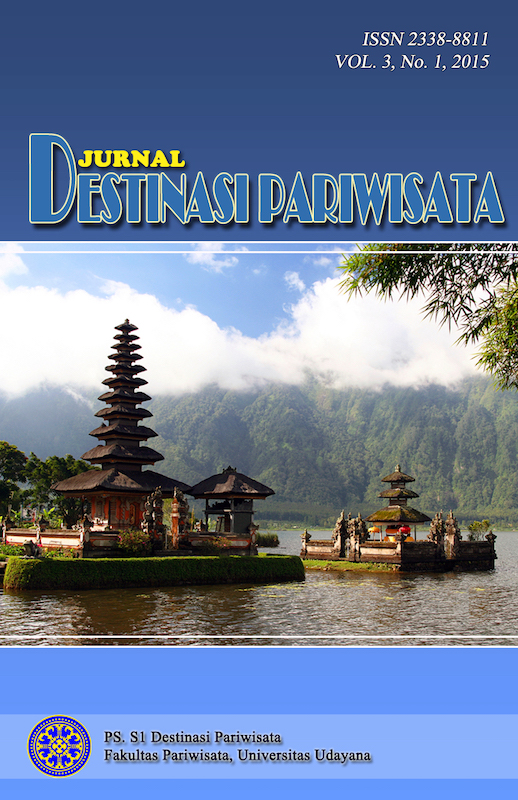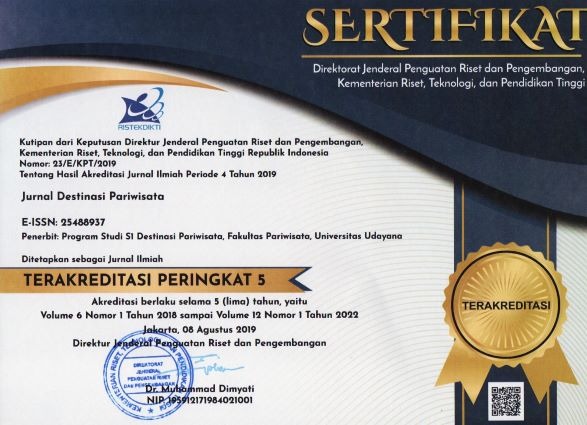STUDI PENGEMBANGAN DESA PINGE SEBAGAI DAYA TARIK EKOWISATA DI KECAMATAN MARGA KABUPATEN TABANAN
Abstract
Abstract
Tourism sector as one of the largest foreign exchange earner and the country as well as creators of jobs, required for excavation efforts and the development of tourism potentials more deeply. Bali has many places that still keeps the beauty of the environment and culture, one of them is Tabanan regency. Natural resources could be a potential to develop as tourist object, but society can not fully develop these resources to the fullest. In relation to rural development Pinge as ecotourism attraction in the Tabanan regency local potentials should be managed optimally in order to be realized. This study used descriptive qualitative method which has qualitative and quantitative data. Data collected by observation, in-depth interviews with purposive sampling approaches, literatures, and documentation. The results showed that there are two potential at pinge : cultural and natural potential. Cultural potential include: archaeological sites, rural settlement patterns, dance Leko, and subak system. Natural potential include: walkways, and hydrology. From the above potentials Pinge village can be developed into eco-tourism attraction in a way that makes ecotourism strategy in the SWOT analysis. After finding the strategies that will be used for rural development Pinge as ecotourism attraction will require programs that can support the passage of the strategies that have been made.Downloads
Download data is not yet available.
Published
2015-06-25
How to Cite
PRANTAWAN P, Dewa Gede Arimbawa; SUNARTA, I Nyoman n.
STUDI PENGEMBANGAN DESA PINGE SEBAGAI DAYA TARIK EKOWISATA DI KECAMATAN MARGA KABUPATEN TABANAN.
JURNAL DESTINASI PARIWISATA, [S.l.], v. 3, n. 1, p. 1 - 8, june 2015.
ISSN 2548-8937.
Available at: <https://ojs.unud.ac.id/index.php/destinasipar/article/view/23206>. Date accessed: 24 feb. 2026.
doi: https://doi.org/10.24843/JDEPAR.2015.v03.i01.p01.
Section
Articles
Keywords
development, ecotourism, potential









